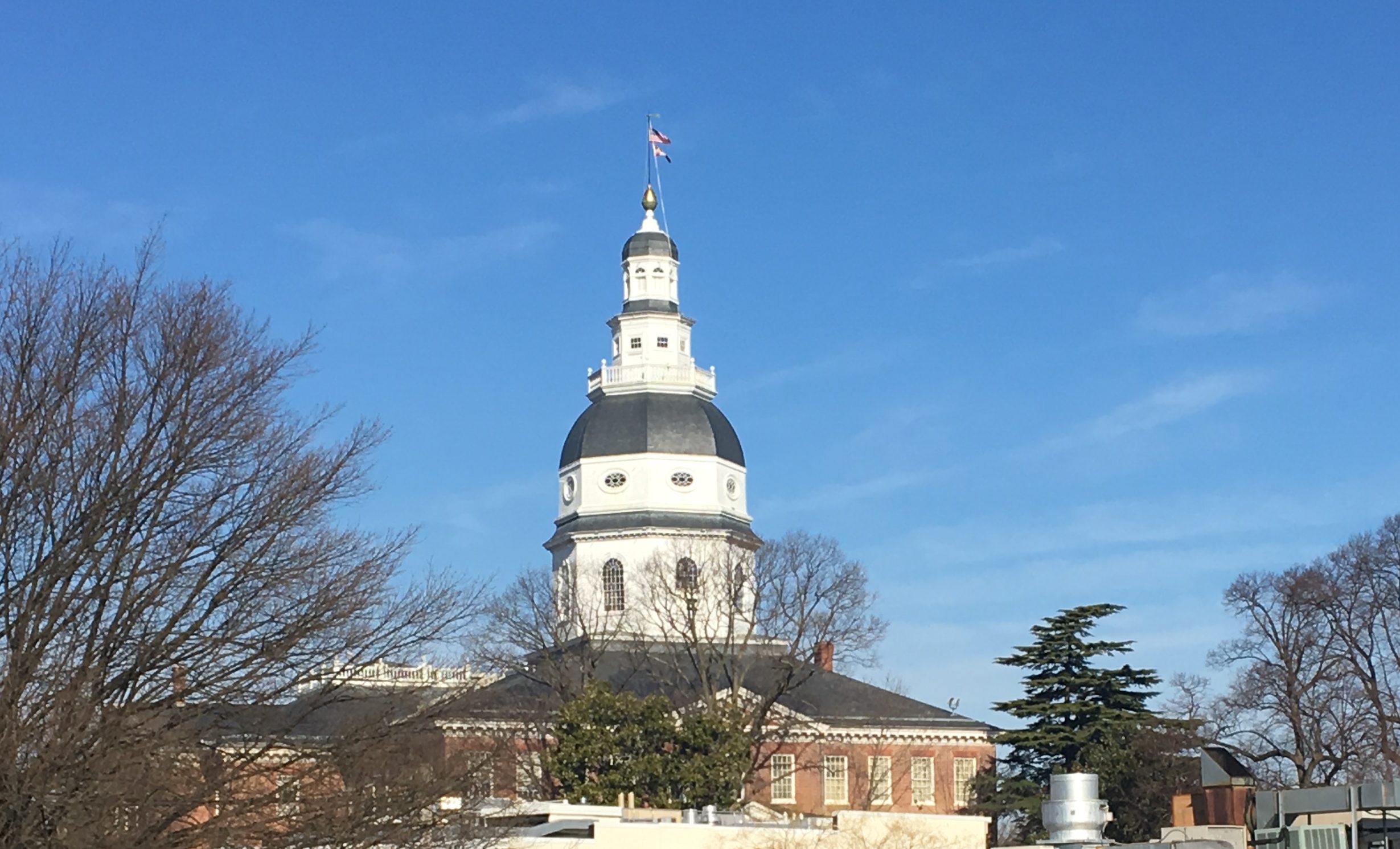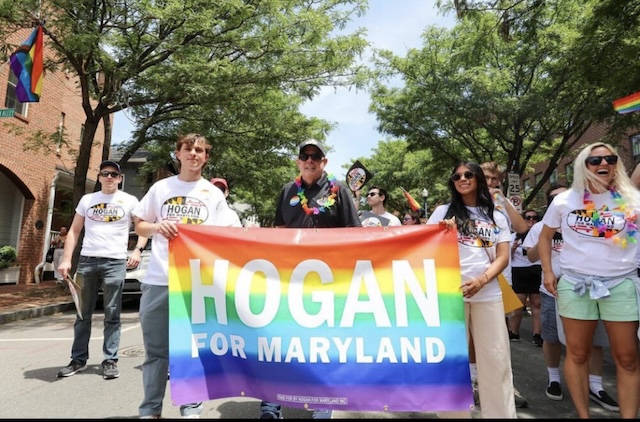Maryland legislative caucus criticizes Hogan’s record on LGBTQ+ issues
WASHINGTON – Members of the Maryland Legislative LGBTQ+ Caucus are accusing former Maryland Gov. Larry Hogan of not standing up for the LGBTQ+ community.
Hogan, the Republican nominee for Maryland’s U.S. Senate seat, has proven he is not an ally to LGBTQ+ Marylanders, a statement from five members of the caucus reads. All are Democrats. Caucus members said it is critical that the Democratic candidate, Prince George’s County Executive Angela Alsobrooks, beats Hogan in November.
“I see the indifference that Larry Hogan expresses and it causes me great pause,” Del. Kris Fair, D-Frederick County, told Capital News Service. “It should cause every LGBTQ+ community member great pause about his ability to support our community.”
The caucus spoke out after Hogan recently dismissed an LGBTQ+ Maryland voter’s concerns about his record at a campaign event, according to the statement and reporting from The Advocate.
In addition to Fair, who is the chair of the Maryland Legislative LGBTQ+ Caucus, the statement was signed by Del. Anne Kaiser, D-Montgomery County; Del. Joe Vogel, D-Montgomery County; Del. Ashanti Martinez, D-Prince George’s County; and Del. Bonnie Cullison, D-Montgomery County.
During his time as governor, Hogan elected to not sign several LGBTQ+ rights bills, including one that protects victims from hate crimes based on their identity. Hogan did not veto or directly oppose the bill and it ended up becoming law without his signature.
Hogan choosing not to sign bills that would protect LGBTQ+ individuals indicated to Cullison that he doesn’t understand the challenges facing the community. LGBTQ+ people rely on laws to give them protections, she said.
“For political reasons, he felt it was important that his name not be on those bills,” Cullison told CNS.
In 2018, Hogan signed a bill into law that bans conversion therapy for LGBTQ+ youth. Cullison — who was a leader in this effort — said it was “an easy one for him to sign.”
Anti-conversion bills were already passing across the country and politics were on his side, she said. Since Hogan signed the bill, similar laws have been enacted in Utah, Virginia and Michigan.
“He’s just been responsive,” she said. “He hasn’t been proactive.”
Martinez thinks Hogan has been silent about the concerns of LGBTQ+ community members and that indicates how the former governor would act in the U.S. Senate if he is elected.
“He decided not to sign these bills,” Martinez told CNS. “I think that’s a clear indiciation to LGBTQ folks and our allies across this state that he is not the champion that we know Angela Alsobrooks will be.”
As governor, Hogan allowed measures to take effect that extend coverage of IVF treatment to same-sex couples and allow transgender people to revise their birth certificates, Hogan campaign spokesperson Blake Kernen said said in a statement to CNS. He also appointed the first openly LGBTQ+ person to serve as chief judge of a Maryland appellate court, Kernen wrote.
“After calling for ‘tolerance and mutual respect’ in his inaugural address, Governor Hogan supported LGBTQ community priorities throughout his time in office,” she wrote. “Maryland has a bipartisan legacy of supporting the LGBTQ community, and Governor Hogan looks forward to building on this work in the Senate.”
Hogan walked in the Annapolis Pride Parade in June, sporting a Pride sticker and lei. His campaign posted on Facebook dozens of pictures of Hogan with attendees at the parade.
“Maryland is a mosaic of diverse communities and cultures, and that’s one of many things that makes our great state so special,” Hogan said in a statement. “As governor, I was proud to represent all Marylanders, and that’s exactly the leader I’ll be in the United States Senate.”
Martinez, a resident of Prince George’s County, said he has witnessed Alsobrooks supporting the LGBTQ+ community during her time as county executive. He appreciates that prominent members of her staff are part of the LGBTQ+ community.
Alsobrooks has held listening sessions, attended Pride events and created an LGBTQ+ liaison position in her office, Martinez said.
“It is really important that we have ourselves represented in all facets of government,” Martinez said.
Cullison agrees that Alsobrooks is the candidate for U.S. Senate that will stand with LGBTQ+ community members.
“Angela Alsobrooks will be the senator who will fight the fight with us,” she said. “She’s supportive and advocates and won’t back down and won’t hide behind not signing something.”
If elected senator, Alsobrooks said she plans to co-sponsor the Equality Act — a bill that would prohibit discrimination on the basis of sex, sexual orientation and gender identity in public accommodations and facilities — and oppose Republican efforts to undermine equality, she wrote in a statement to CNS.
The Human Rights Campaign, an LGBTQ+ civil rights organization, endorsed Alsobrooks this summer.
“What we understand is that this race in Maryland will likely decide whether Democrats or Republicans control the Senate Majority. Republicans have made it clear that no such votes to protect and elevate our LGBTQ+ community will come to the Floor if they take back the Majority,” Alsobrooks wrote in her statement.
Fair said that while Hogan may not propose bills that directly harm the LGBTQ+ community, he will likely allow other Republicans to do so.
“Larry Hogan is the symptom of a problem coming down the road that’s going to be devastating for our community,” Fair said.

Capital News Service is a student-powered news organization run by the University of Maryland Philip Merrill College of Journalism. With bureaus in Annapolis and Washington run by professional journalists with decades of experience, they deliver news in multiple formats via partner news organizations and a destination Website.

